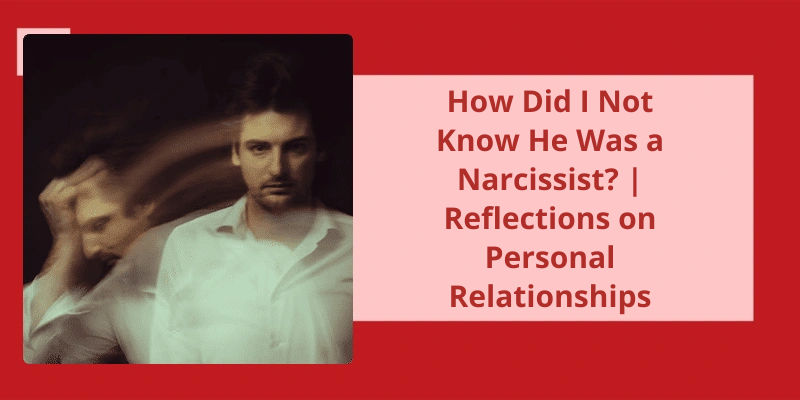The ability to listen is crucial in our daily lives, from personal to professional interactions. However, many of us encounter situations where we find ourselves unable to listen to people. It’s a frustrating experience that can lead to misunderstandings, miscommunications, and conflicts. The reasons why we struggle to listen can vary, but a common factor often lies in our preconceptions and biases. When we’ve certain beliefs or assumptions about someone, it can hinder our ability to truly hear what they’re saying. This can have significant and damaging consequences, and it’s essential that we recognize and address our biases to become better listeners. In this article, we will delve deeper into the concept of listening, explore the impact of biases on our ability to listen, and offer strategies to improve our listening skills.
Why Do I Struggle to Listen?
Additionally, distractions can also hinder our ability to listen. A noisy or chaotic environment can make it difficult to focus on what someone is saying. Similarly, if we’re preoccupied with other thoughts or tasks, it can be challenging to give our full attention to the speaker. This can lead to misunderstandings and miscommunications, causing further difficulties in our relationships and interactions.
Another reason why some people struggle to listen is due to their own personality traits. For example, if someone is naturally more talkative or assertive, they may find it challenging to sit still and listen without interrupting or dominating the conversation. Similarly, individuals who’re more introverted may struggle to speak up and engage in conversations, causing them to withdraw and not fully participate in listening.
In some cases, hearing difficulties can also play a role in our ability to listen. If someone has hearing loss or impairment, they may struggle to pick up on certain sounds or words, making it challenging to understand what’s being said. This can lead to frustration and a lack of engagement in conversations, causing further communication breakdowns.
Ultimately, learning to listen requires effort, practice, and a willingness to be open-minded and receptive to others perspectives. It involves actively focusing on the speaker, paying attention to their words, body language, and tone of voice. It also means setting aside our own biases and preconceptions, and being present in the moment. By developing these skills, we can improve our relationships, become more effective communicators, and better understand those around us.
Listening as a Tool for Conflict Resolution in Personal and Professional Relationships
Listening attentively to the other person’s point of view during a conflict is an effective tool for finding resolution in both personal and professional relationships. By actively listening, one can understand the other party’s perspective and be able to provide constructive feedback, which can ultimately lead to compromise and resolution.
In order to become a more effective listener, it’s important to identify and overcome the barriers that prevent us from truly hearing and understanding others. These barriers can often be personal in nature, and include a lack of preparation, poorly conveyed messages, and preconceived biases. By recognizing these obstacles and actively working to overcome them, we can become more attentive and empathetic listeners, leading to stronger communication and better relationships.
What Are the 3 Barriers to Listening?
Listening is one of the most important skills that we all need in order to communicate effectively. Unfortunately, it’s not always easy to listen effectively, and there are several barriers that can get in the way of effective communication. The three main barriers to listening are personal barriers, physical barriers, and external barriers.
Personal barriers to effective listening include a lack of listening preparation, poorly structured and/or poorly delivered messages, and prejudice. Prejudice is one of the most common barriers to effective listening, and it can be incredibly difficult to overcome. If we hold preconceived notions about the person were listening to or the message theyre delivering, it can be very difficult to take in new information objectively.
This includes being distracted or uninterested in the conversation, or failing to take the time to prepare yourself mentally and emotionally for the conversation. If youre not fully engaged in the conversation, it can be nearly impossible to listen effectively, and you may miss important details or misunderstand the speakers message.
Poorly structured or poorly delivered messages can also be a barrier to effective listening. If the speaker isn’t clear, concise, and focused, it can be difficult to understand what theyre saying. In addition, if the delivery is poor (such as speaking too quickly, using a monotone voice, or failing to make eye contact), it can be difficult to stay engaged and focus on the message.
These include noise, distance, and distractions such as electronic devices. If there’s too much noise or if the speaker is too far away, it can be difficult to hear and understand what theyre saying. Similarly, if youre distracted by your phone or computer, it can be difficult to stay focused on the conversation and tune out external distractions.
Finally, external barriers can also get in the way of effective listening. These can include cultural and linguistic differences, as well as time constraints and competing priorities. If youre communicating with someone from a different culture or background, it can be difficult to understand their perspective and interpret their message accurately. Similarly, if youre pressed for time or have competing priorities, you may not be able to give the conversation your full attention, which can lead to misunderstandings and missed opportunities for effective communication.
Source: 5.2 Barriers to Effective Listening – University of Minnesota
It’s clear that poor listening has a significant impact on both personal and professional relationships. When we fail to listen effectively, we’re more prone to misinterpreting messages and making assumptions that can lead to uncomfortable situations. This can cause issues within teams, families, and friendships, often leading to a breakdown in trust and communication. In the following paragraphs, we will examine the specific effects of poor listening and explore ways to become a more effective listener.
What Are the Effects of Inability to Listen to Others?
Inability to listen to others has wide-ranging consequences in both personal and professional relationships. At work, poor listening can lead to missed deadlines, failed projects, and loss of clients. It also creates a toxic work environment where people aren’t heard, and their ideas are dismissed. This leads to demotivation and lower productivity levels in the team.
It creates a rift between people, where one person feels unheard and undervalued. This can lead to resentment and frustration, ultimately leading to a breakdown in the relationship. Couples who fail to listen to each other often end up in divorce or separation.
Poor listening also has a significant impact on mental health. People who feel unheard and dismissed often suffer from depression, anxiety, and low self-esteem. They also tend to bottle up their emotions, leading to outbursts or other destructive behavior. In some cases, it can even lead to suicidal thoughts or attempts.
Inability to listen to others also hinders personal growth and development. People who aren’t open to feedback or suggestions from others tend to be stuck in their ways and resistant to change. This leads to a lack of personal growth and development, which is essential for a fulfilling life. It also prevents people from learning from their mistakes and making the necessary changes to improve their lives.
It hinders communication, leads to misunderstandings and assumptions, and ultimately damages relationships. It’s important to develop active listening skills to understand others perspectives and ideas, improve communication, and foster healthy relationships. It can also lead to personal growth and development, creating a fulfilling life both personally and professionally.
The Role of Empathy in Improving Listening Skills
Empathy plays a key role in improving listening skills as it allows individuals to truly understand and connect with the emotions and perspectives of others rather than just hearing their words. By cultivating empathy, individuals become more attentive listeners, able to pick up on subtle nuances in tone and body language, and respond in a way that demonstrates they’ve truly understood the speaker’s message. This leads to stronger relationships and better communication overall.
Now that we’ve established some of the common reasons behind why a person may not be listening, we wanted to hear from our readers about their strategies for dealing with these situations. Whether you’re dealing with a coworker, friend, or family member who just won’t hear you out, there are a variety of approaches you can take to try to get through to them. Here are some of the best tips and tricks our readers shared.
What Causes a Person to Not Listen?
Have you ever found yourself talking to someone who just doesn’t seem to be listening? It can be frustrating, and it’s easy to assume that the person simply doesn’t care about what you’ve to say. However, there are many reasons why someone might not be fully present in a conversation.
Arrogance and pride are two common culprits when it comes to poor listening skills. If someone thinks they’ve all the answers or believes that they’re superior to those around them, they may not see the value in truly listening to others. They may also struggle to accept feedback or criticism, which can further hinder their ability to engage in meaningful conversations.
Defensiveness is another potential barrier to effective communication. When someone feels attacked or criticized, they may become so focused on defending themselves that they miss important information or fail to fully understand the other persons perspective. This can be particularly challenging in situations where there’s conflict or tension, as emotions can run high and rational thinking can be compromised.
An unwillingness to admit to mistakes can also impact a persons listening skills. If someone is deeply invested in being perceived as perfect or infallible, they may be resistant to acknowledging their flaws or limitations. This can make it difficult for them to listen to feedback or accept new ideas, as they may perceive these things as a threat to their self-image.
If you find yourself in a situation where someone isnt listening to you, it can be helpful to approach the conversation with empathy and curiosity. Try to understand why the person may be struggling to tune in, and avoid jumping to conclusions or making assumptions. Additionally, it may be useful to reframe your message in a way that speaks to the other persons values and priorities. By doing so, you may be able to capture their attention and encourage them to engage more fully in the conversation.
Ultimately, effective communication is a two-way street. While it’s important to be clear and concise in your messaging, it’s equally important to actively listen and engage with others in a meaningful way. By recognizing the potential barriers to good listening and proactively working to overcome them, we can all become more effective communicators and build stronger relationships with those around us.
The Role of Active Listening in Conflict Resolution
- Active listening is a crucial part of conflict resolution, as it helps to ensure that all parties feel heard and understood.
- Engaging in active listening means focusing on the speaker and really trying to understand their point of view, rather than just waiting for your turn to speak.
- Through active listening, people can identify the underlying emotions and needs behind a conflict, which can help to find a mutually beneficial solution.
- Active listening techniques include paraphrasing, asking open-ended questions, and summarizing what you’ve heard.
- Practicing active listening can’t only resolve conflicts more effectively, but also improve communication and build stronger relationships.
It can be frustrating when someone refuses to listen to others, as it can impede communication and hinder progress. Understanding the different ways to describe this behavior can be helpful in identifying and addressing it.
What Do You Call a Person Who Doesn’t Listen to Anyone?
These descriptions all indicate a stubbornness or a refusal to acknowledge the ideas or opinions of others. A person who doesn’t listen to anyone may also be described as being “closed-minded” or “self-centered”, as they may believe that their own thoughts and ideas are the only ones that matter.
It’s important to note that not listening to others can have negative consequences in both personal and professional relationships. It can lead to misunderstandings, hurt feelings, and missed opportunities for growth and learning. In a work setting, a person who doesn’t listen to others may struggle to collaborate with coworkers and may have difficulty adapting to changes or new ideas.
There may be various reasons why a person doesn’t listen to others. They may have a strong sense of their own identity and opinions and feel that they don’t need outside input. Alternatively, they may struggle with attention or emotions that make it difficult for them to focus on what others are saying. Regardless of the reason, it’s important to address the issue in a constructive way in order to avoid this behavior becoming harmful or causing conflict.
In some cases, it may be helpful to enlist the help of a mediator or counselor to facilitate communication and collaboration. It may also be helpful to have a frank conversation with the person about how their behavior is impacting others and what steps they can take to improve their communication skills. Ultimately, it’s up to the individual to recognize the importance of listening to others and to take steps to address any underlying issues that may be causing them to shut others out.
The Difference Between Not Listening and Respectfully Disagreeing
Not listening refers to ignoring or disregarding someone’s viewpoint or perspective entirely without any attempt to understand or engage with it. Respectfully disagreeing, on the other hand, involves acknowledging and understanding someone’s viewpoint or perspective but expressing a differing opinion in a polite and respectful manner.
Conclusion
These preconceived notions can cause us to tune out when we think we know what the other person is going to say or dismiss their ideas before fully hearing them out. It’s essential to recognize these biases and actively work to overcome them in order to be truly empathetic and effective listeners. By paying attention to the complex affective, cognitive, and behavioral processes involved in listening, we can improve our communication skills and build stronger relationships with those around us. So, be more aware, and actively try to listen to what others are saying, even if you don't agree with them.






